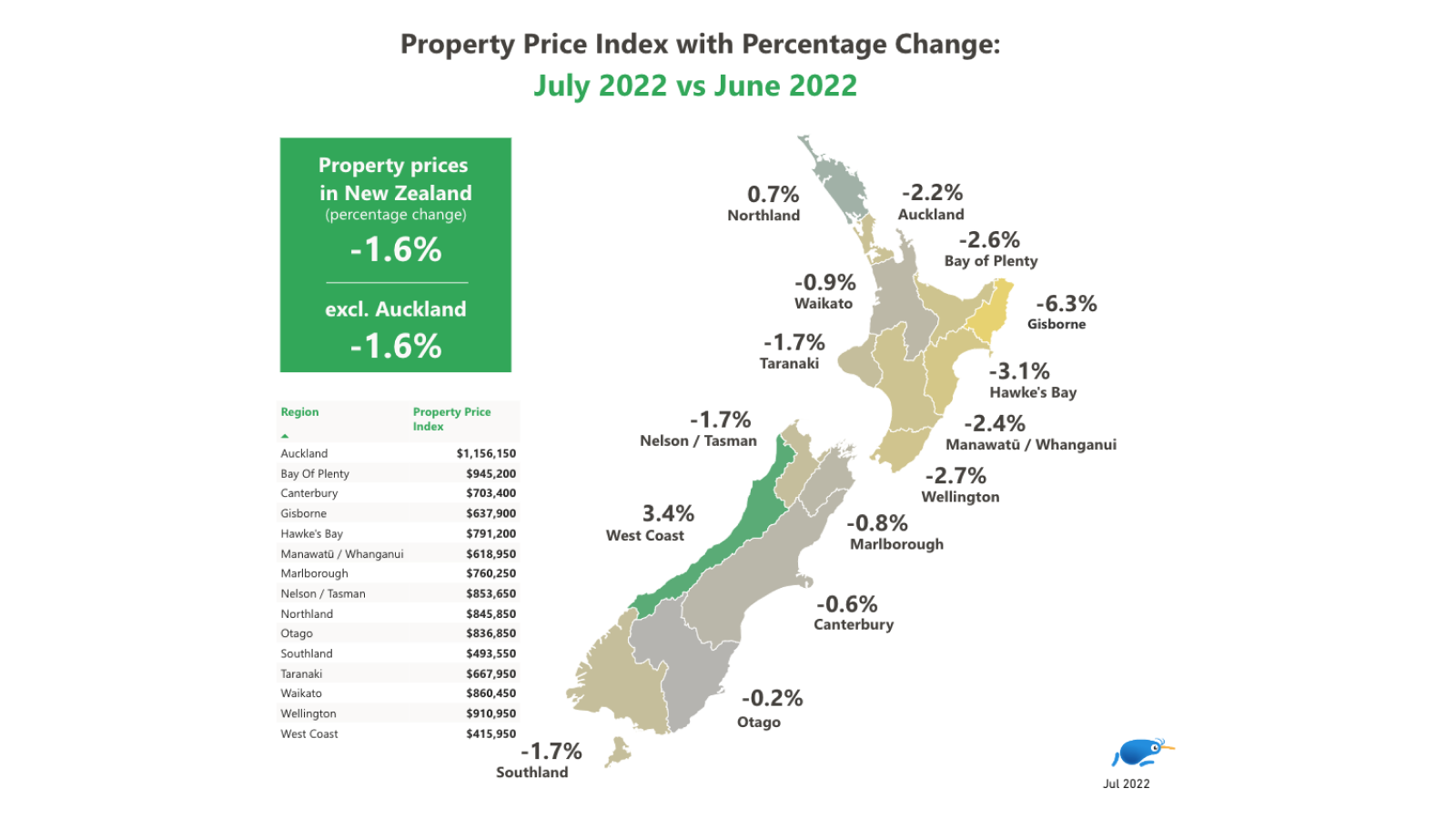| Region | Supply % change | Demand % change | |||
|---|---|---|---|---|---|
| Hawke's Bay | Hawke's Bay | +99% | +99% | +22% | +22% |
| Nelson/Tasman | Nelson/Tasman | +97% | +97% | +15% | +15% |
| Wellington | Wellington | +90% | +90% | +12% | +12% |
| Bay of Plenty | Bay of Plenty | +86% | +86% | +3% | +3% |
| Waikato | Waikato | +84% | +84% | -5% | -5% |
| Manawatū/Whanganui | Manawatū/Whanganui | +77% | +77% | +6% | +6% |
| Northland | Northland | +56% | +56% | +7% | +7% |
| Gisborne | Gisborne | +55% | +55% | +8% | +8% |
| Taranaki | Taranaki | +54% | +54% | -4% | -4% |
| Canterbury | Canterbury | +45% | +45% | -15% | -15% |
| Auckland | Auckland | +39% | +39% | -14% | -14% |
| Marlborough | Marlborough | +31% | +31% | -4% | -4% |
| Otago | Otago | +31% | +31% | +4% | +4% |
| Southland | Southland | +25% | +25% | -9% | -9% |
| West Coast | West Coast | +12% | +12% | -15% | -15% |
| Nationwide | Nationwide | +54% | +54% | -5% | -5% |
Prices slump for three consecutive months
Price growth slows in the Capital
Auckland prices see smallest growth in two years
Other news you might like




